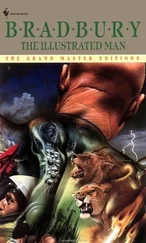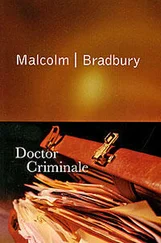Malcolm Bradbury - The History Man
Здесь есть возможность читать онлайн «Malcolm Bradbury - The History Man» весь текст электронной книги совершенно бесплатно (целиком полную версию без сокращений). В некоторых случаях можно слушать аудио, скачать через торрент в формате fb2 и присутствует краткое содержание. Жанр: Современная проза, на английском языке. Описание произведения, (предисловие) а так же отзывы посетителей доступны на портале библиотеки ЛибКат.
- Название:The History Man
- Автор:
- Жанр:
- Год:неизвестен
- ISBN:нет данных
- Рейтинг книги:3 / 5. Голосов: 1
-
Избранное:Добавить в избранное
- Отзывы:
-
Ваша оценка:
- 60
- 1
- 2
- 3
- 4
- 5
The History Man: краткое содержание, описание и аннотация
Предлагаем к чтению аннотацию, описание, краткое содержание или предисловие (зависит от того, что написал сам автор книги «The History Man»). Если вы не нашли необходимую информацию о книге — напишите в комментариях, мы постараемся отыскать её.
The History Man — читать онлайн бесплатно полную книгу (весь текст) целиком
Ниже представлен текст книги, разбитый по страницам. Система сохранения места последней прочитанной страницы, позволяет с удобством читать онлайн бесплатно книгу «The History Man», без необходимости каждый раз заново искать на чём Вы остановились. Поставьте закладку, и сможете в любой момент перейти на страницу, на которой закончили чтение.
Интервал:
Закладка:
The door opens slowly; two students stand in the frame. They are girls, one neat and bra-less, the other fat and dressed in a long, Victorian-style dress. Howard has not taught them before, but they are both immediately recognizable as Watermouth types, bright and anxious looking, ringed under the eyes, entering rooms cautiously; Watermouth is notable for experimental forms of teaching that often resemble physical assault. 'Dr Kirk,' says the bra-less girl. 'We're minors,' says the fat girl. 'We're yours,' says the bra-less one. 'You're minors and you're mine,' says Howard. 'That's it,' says the fat girl. 'You want to do sociology,' says Howard. 'Well, we have to do sociology,' says the bra-less girl, 'to be frank.'
'Don't you want to?' asks Howard. 'Why do they make us?' asks the fat girl. Howard takes the girls across to the window; he shows them the glass and concrete view; he tells them about Gemeinschaft to Gesellschaft; he says, 'How else could you know why the world has become what it is?'
'Is that what it's about?' asks the bra-less girl. 'That's right,' says Howard. 'Well, that's everything, isn't it?' asks the bra-less girl. 'Exactly,' says Howard. 'Ooooo,' says the fat girl, standing on Howard's other side. 'What's that?' asks Howard. 'Over there,' says the fat girl, and she points her finger out over the gloomy campus, 'I can see where I live.'
'Where?' asks Howard. 'I'm in Hegel,' says the girl, 'but the roof leaks.'
'Dr Kirk, who was Hegel?' asks the bra-less girl. 'Ah,' says Howard, 'You see, you do need to study sociology.'
'Did he know a lot?' asks the bra-less girl. 'He did,' says Howard, 'but his roof leaks.'
'You know more,' says the fat girl. Howard laughs; he steps back into the centre of his room, and arranges two of his plastic chairs, so that they form a triangle with his own desk chair. In the plastic chairs he puts the girls; in his desk chair he puts himself; he talks to them, he tells them about their work for the term, he sets them some reading, he advises them on the purchase of books, he asks the fat girl to write him an essay for next week. The girls get up, and go. 'He didn't tell you who Hegel was,' says the fat girl, as they walk off down the corridor. 'Hey,' shouts Howard, after them, 'Come to a party, eight o'clock tonight at my house,'
'Ooooo,' says the fat girl.
And so the morning passes. At home, domestic Barbara unwraps cheeses, and cuts sausages, and tidies the house; in his rectangular room Howard sees students, old ones and new ones, sets essays, recommends courses, sets reading, asks for essays, invites them to his party. The stable clock chimes; the rain falls. At twelve-thirty there is no knock on his door; he takes his leather coat from the peg, and descends, down the lift, into the complexities of the campus. The student hordes pass, to and fro, across the Piazza; Howard walks through them, a contemporary stylist himself, and makes his way to the Students' Union building. There are many services for a Howard to perform in a modern society; he has now another duty. The Revolutionary Student Front, that vague, contentious coalition of Marxists and Maoists and Marxist-Leninists and Revolutionary Socialists, has its inaugural meeting of the term; Howard, busy in the world as well as in the mind, has agreed to address it, to help it recruit. In more plastic chairs, in a tiny room in the Union, a group of students sits. The rain splashes on the windows; a pop group rehearses in the next room. A student called Peter Madden, who, if this uncertain consortium believed in having a leader, would be it, leads him to the front of the group. Madden wears denims and hostile, one-directional sunglasses; he stands and says a few words, explaining the purpose of the group, its relevance and its ire, to the newcomers. There are not many there, for it is early for issues and political discovery, and they are solemn, like a class. Howard stands up; the faces look. He leans with one hand on the arm of a chair; he glances out of the window at the futurist city; he begins to speak. He offers a calm analysis of the socio-political situation in which, he says, we find ourselves. We are in a world of late capitalism, and capitalism is an over-ripe plum, ready to fall. It is cracking, bursting, from its inner contradictions; but who, from its fall, will benefit? How can the new world come?
He speaks on; he generates images of violence. The faces stare, as he talks of armed struggle, the need for unity, the claims of blood and force. The dark portrait builds up, to the room's consent. He stops speaking; he invites discussion; the minds contemplate the techniques of bloodshed, the degree of warfare, the bright new reality at the end of it all. Afterwards they go quietly from the room; the pop group raises the decibels in the next room. In the cafeteria, over a salad plate, Howard says to Peter Madden: 'Not too many there.'
'You don't radicalize people by talk,' says Peter Madden, 'you get them in by action.'
'That's right,' says Howard. A girl called Beck Pott, in denim, her fair hair done up in twists, says: 'Have you got some action?'
'I don't know,' says Howard, 'Moira Millikin told me this morning that Mangel might be coming here to speak.'
'You have to be joking,' says Beck Pott, 'everybody's so low-profile these days you can't get a fascist to perform a fascist action.'
'Why don't they repress us the way they used to?' asks Peter Madden. 'There's your problem,' says Howard, 'so you have to go for the soft liberal underbelly. Find where they're tolerant and go for that. Mangel tempts them to tolerance.'
'But what makes you think they'll invite him?' asks Beck Pott. 'I expect they will,' says Howard. 'Well, great,' says Beck Pott. 'Buy me a beer, Howard. You've got more money than me.'
'Give her the money,' says Peter Madden, 'she can fetch it herself.'
'I'll get it, I'm going,' says Howard. 'Look, come to a party at my home tonight.'
'Okay,' says Beck Pott.
'Myra and I are looking forward very much to the party at your house tonight,' says Henry Beamish, a few minutes later, as they meet each other getting into the lift in the Social Science Building. 'We always look forward to your parties.'
'Well, good,' says Howard, 'it should be a lively evening. We've asked everybody.'
'You always do,' says Henry, standing inside the box, and pressing the wrong button; the lift begins to descend, irrevocably, into the basement of the building, where the rubbish is kept. 'Yours are the most interesting parties we go to.' The lift doors open; they stare at dustbins. 'How's Myra?' asks Howard, pressing the right button. 'Oh, well, you know,' says Henry. 'No,' says Howard, as they rise. 'She's all right,' says Henry. 'She's just bought a new Miele dishwasher. How's Barbara?'
'Ah, Barbara,' says Howard, 'she's fighting back.'
'A good girl,' says Henry. 'Ah, well, term again, thank the Lord, I don't have to do any more to my book.'
'You're writing a book, Henry?' says Howard, as the lift stops. 'That's good.'
'I thought I'd do a book,' says Henry, 'I've nothing to say, of course. Ah, here we are. Take care, old boy.'
'I will,' says Howard. 'Till tonight,' says Henry, disappearing down one of the corridors on the fifth floor. Howard walks along the facing corridor; he goes back to his room. And now there are more students to see, letters to write, memos to dictate to Miss Ho, who sits in the grey chair, and takes shorthand from him. After this he goes to the library; the computer issues him some books; he carries them back to his room, and packs his briefcase. Then, with a good start to the new term behind him, and the joy of the party ahead, he goes out to the car park. It is just before five o'clock, on the day that Flora, and so many others, have noted in their diaries, that he gets back to the house in the terrace, and walks through the cool hall into the kitchen at the back.
Читать дальшеИнтервал:
Закладка:
Похожие книги на «The History Man»
Представляем Вашему вниманию похожие книги на «The History Man» списком для выбора. Мы отобрали схожую по названию и смыслу литературу в надежде предоставить читателям больше вариантов отыскать новые, интересные, ещё непрочитанные произведения.
Обсуждение, отзывы о книге «The History Man» и просто собственные мнения читателей. Оставьте ваши комментарии, напишите, что Вы думаете о произведении, его смысле или главных героях. Укажите что конкретно понравилось, а что нет, и почему Вы так считаете.











